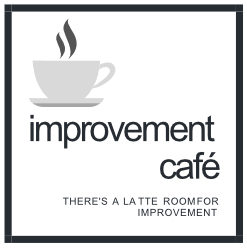While many of the articles on this website provide actionable information to apply in your life, I think there are a few important things you need to know about yourself before any further reading. So, I wrote this to all past, present, and future readers in the hopes that it enhances their experience of the content laid out in the webpages and hyperlinks that make up this little corner of the internet.
Let’s get down to business.
Firstly, you have agency over your life. To borrow an idea I took from the great Stephen Covey, author of The 7 Habits of Highly Effective People, you are in the driver’s seat.
1. You are in control of your life, no matter how difficult, daunting, or insurmountable your circumstances may seem.
Now, this isn’t to diminish your present reality. Keeping with the driving metaphor, some people have nicer cars, better tires, or functioning air conditioning. Some may have a spouse in the passenger’s seat and children in the back. Certain people have better motor skills and car repair knowledge. They may start with more gas in the tank or maybe they were gifted the car from their parents. Surely there’s no shortage of unfairness in the world regarding our “start position.”
Do I think these factors matter? Certainly; there’s no question about it. Do I think having an awareness of these realities is relevant to a healthy society? Again, yes. However, on an individual basis, I really want you to ask yourself this simple question: Has bitterness and resentment for your circumstances made you better off in any conceivable way?
Maybe that’s a bit harsh. Allow me to phrase this in a different way. If you stripped your life down to its constituent parts, mainly relationships with others, with the world, and with yourself, can you honestly say you’ve done everything you can to make things right?
“If you stripped your life down to its constituent parts… can you honestly say you’ve done everything you can to make things right?”
Have the tires on your car been properly inflated, worn and meager their tread may be? Have you replaced or even checked the oil in a while? Have you cleaned the trash from inside the doors (yeah, I’m looking at you) or, even more, vacuumed the interior since you purchased it?

Have you apologized to your little brother for the vicious things you said and did to him as a kid, and the subsequent trauma in his life that was left in your wake? Have you shown sufficient gratitude to your parents for raising you, even though they may not have been perfect parents (nor you, a perfect child)? Did you give your all in class or at that work meeting today? Did you eat well or try your best to sleep the night before you decided to snap at your friend for talking too long or loudly at lunch?
Chances are that you could continue this line of questioning if you really wanted to, although we usually don’t. While there’s always a temptation to abdicate the responsibility you have in your present situation by blaming others, the world, or even God, these objections could all be met with equally relevant inquiries into your own wretched self. The difference between these two? You have immense control over yourself and very little control over the world.
Clinical psychologist and holocaust survivor Viktor Frankl was an advocate of this line of thinking. In his seminal work, Man’s Search for Meaning, Frankl detailed the horrors he and many other Jews faced in the Nazi concentration camps of WWII. Frankl and his fellow Jews were subject to starvation, sleep deprivation, typhoid fever — you name it.

Frankl knew the moment he gave up on his search for meaning, especially under such dire straits, was the moment he ceased to find any meaning at all. There’s something to be found in the process of the search as opposed to what you receive at the end of it. By recognizing that humans are always moving towards some perfection of their flawed selves, regarsless of circumstance, Frankl came to the conclusion that “He who has a why can bear almost any how.”
As a result of his epiphany, Frankl was known for claiming that he was more liberated than any one of the Nazi guards who worked in the concentration camps. He recognized that even in times of profound hardship he was the one in control, as long as he maintained his own internal metric for improvement and a hope for a better future because of it.
2. You can construct a vision for your life using your creativity, and that vision can become a reality.
I know it’s difficult to think of ourselves as being capable of “writing out or speaking the future into existence” — it sounds a little prophetic to some people. But this is truer than any other piece of advice I’ve received. Our ability to envision a future apart from our present reality is a gift that makes us inherently different from the other creatures that roam this earth.
Yet, the bedrock for a vision lies in an important assumption about our behavior. Consider for a moment that as early humans we learned not only to hunt and gather food for the present day, but also to save resources for the future. Even better, we were able to share this food with our neighbors and thus, an interdependent society is born.
What I am referring to in this (incredibly oversimplified) retelling of early humanity is the idea of delayed gratification — the attitude of forgoing expedient pleasure in pursuit of a long-lasting or long-term reward. The reciprocal relationship between one’s vision and feelings about delayed gratification contains a force to be reckoned with.
I first tasted this relationship when I started sophomore year of high school. At the time, I discovered I was sitting in one of the top three positions of my class rank. Soon after I came home from school that day, I wrote out a bulleted list that I later realized was a primitive vision statement:
- I will graduate valedictorian of my class
- I will earn my associates degrees by the time I turn 18
- I will give the speech at my high school graduation
Well, what do you know? I dropped out of high school and have struggled ever since.
Okay, I’m kidding. Every point on this list came true, though. After engaging in late nights of studying, community college classes after school, and, admittedly, a fair share of mental breakdowns, I was able to not only realize the future I’d laid out for myself, but I actually had a lot of fun in the process.
The Purpose of Vision
Notice that I couldn’t have done this had I’d written this list out but believed I should have felt immediately satisfied by my steps towards difficult hours of study. Likewise, I couldn’t just aimlessly take difficult classes without fitting these into a wider timeline and vision for my educational goals.
Since then, I’ve taken up the process of writing more extensive and well-structured vision statements than a bulleted list on a piece of scrap paper. Each time I do these I’m re-energized for the coming years and feel like I’m oriented towards a mission worth pursuing.
And here’s the thing: I’m not the exception. I know that each and every person has the ability to set a target that they will eventually reach. Will you always reach these goals in the allotted timeframe? Probably not, but being 10% closer to your goal, whether it’s building your emergency fund, playing a song on an instrument, or graduating from college, is a hell of a lot better than being 0% closer and filled with the same soul-crushing resentment for your circumstances as before.
And this brings me to the last thing I want you to know.
3. You have to execute the plan for it to work.
You can believe in your agency all you want and write out a vision that would bring Tony Robbins himself to tears. If you don’t even attempt to carry out the dream you’ve built up in your mind, though, that’s exactly where those plans will remain.
“…being 10% closer to your goal… is a hell of a lot better than being 0% closer and filled with the same soul-crushing resentment for your circumstances as before.”
Have you ever met a person who constantly had new plans, but never quite executed them? All talk but no actual skin in the game?
If you haven’t, let me tell you that these people are not pleasant to be around. I know this because I was one of those people (oftentimes, I still am). They’re the kind of people who take one look at some ingenious product, business, or idea and say, “I could have done that!”
Well, why didn’t you? It’s likely that the person who did do that faced many challenges that you would face. The difference is that they made a conscious decision to overcome these challenges and see their plans through. Not only that, but these self-actualized people also sought to communicate what they wanted from the world and how they could bring value to people’s lives.
Welcome to the Café…
I would even venture to say that many of these people do not have the same caliber of natural ability that you possess. In the car metaphor from earlier, maybe they’re driving a Honda Civic while you’re sitting in a Lamborghini. But maybe the reason they’ve surpassed you in key metrics such as relationships, spirituality, finances, and the like is because they knew how to turn the key in the ignition; they knew the rules of the road; and they had a roadmap that they’ve been adding to for years, so they know where they’re going. Having a Lamborghini doesn’t do much for you if you don’t know how it starts, how to drive it, how to care for it, or where you’re going.
Therefore, I hope this blog becomes a rest stop — a place to re-establish your bearings; to help others find the ignition and maybe give them a jump start; somewhere you can be taught the rules of the road, or more widely, life; a gathering place in which others, including myself, can compare roadmaps.
So why Improvement Café?
Granted, Improvement Rest Stop just doesn’t have quite the same ring that I would have liked. And if you couldn’t tell from my metaphors, I don’t know squat about cars (whew — glad I can kill that metaphor). By contrast, Improvement Café is inviting, and that’s the way I hope it comes off to my readers. After all, I know much more about coffee than I do internal combustion engines.

A café asks its patrons to make themselves part of the conversation and the environment. Hopefully, some of these articles read like the wisdom of an unlikely stranger you strike up conversation with over a chai latte. Or perhaps it’s your favorite place to compare notes with a friend while the sounds of classical music emanate from your surroundings, spurring new patterns of thought never before ventured. It’s where you read a book you’ve been meaning to get to while sipping on a cold brew during summertime.
Now, to avoid running the risk of making promises I can’t keep, I’m not going to tell you I have the antidote to all your problems. I, too, am in a constant process of formation and have no moral or intellectual superiority over any of the people who stumble upon this blog. In fact, recognizing your agency, acting on it with vision and creativity, and executing your plans towards a goal worthy of pursuit is rife with heartbreak, setbacks, and failure.
But these are all risks worth taking.
In each of these hardships, we gather knowledge, wisdom, and insights that we can use to correct our behavior later on. Sometimes this information comes from a friend or an enemy, a victory or defeat, love or loss. But it comes nonetheless, and each time we encounter these issues, we’re a little bit braver. Improvement Café is a repository for such knowledge and a tool to make each and every one of you more courageous in the process of becoming a better person.
Come on in, friend. There’s a latte room for improvement.

